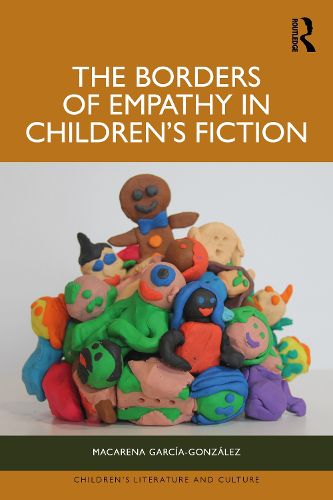Readings Newsletter
Become a Readings Member to make your shopping experience even easier.
Sign in or sign up for free!
You’re not far away from qualifying for FREE standard shipping within Australia
You’ve qualified for FREE standard shipping within Australia
The cart is loading…






The Borders of Empathy in Children's Fiction centres the question of how reading fiction develops our moral imagination and our capacities to think and feel with others. The question is approached with a good dose of skepticism revising tensions between ethical, aesthetical and pedagogical dimensions when certain books, films and other cultural materials are recommended for children. This volume examines how texts addressed to children are meant to assist socioemotional education and whether we put forward adultist assumptions around such conceptualisations of the emotional. The book is organized in ten chapters with some of them focusing on 'difficult' themes -such as violence, xenophobia, death, migration, gender and social exclusions- and some others on more general relationships between emotions, media and education. The chapters combine textual analysis of recommended cultural materials for children with insights from empirical research and ethnographic approaches to children's cultures. A common thread throughout the book is the open question about the epistemic injustices in knowing children and childhood and how this may be overcome by shifting our research practices with posthumanist philosophies.
$9.00 standard shipping within Australia
FREE standard shipping within Australia for orders over $100.00
Express & International shipping calculated at checkout
The Borders of Empathy in Children's Fiction centres the question of how reading fiction develops our moral imagination and our capacities to think and feel with others. The question is approached with a good dose of skepticism revising tensions between ethical, aesthetical and pedagogical dimensions when certain books, films and other cultural materials are recommended for children. This volume examines how texts addressed to children are meant to assist socioemotional education and whether we put forward adultist assumptions around such conceptualisations of the emotional. The book is organized in ten chapters with some of them focusing on 'difficult' themes -such as violence, xenophobia, death, migration, gender and social exclusions- and some others on more general relationships between emotions, media and education. The chapters combine textual analysis of recommended cultural materials for children with insights from empirical research and ethnographic approaches to children's cultures. A common thread throughout the book is the open question about the epistemic injustices in knowing children and childhood and how this may be overcome by shifting our research practices with posthumanist philosophies.